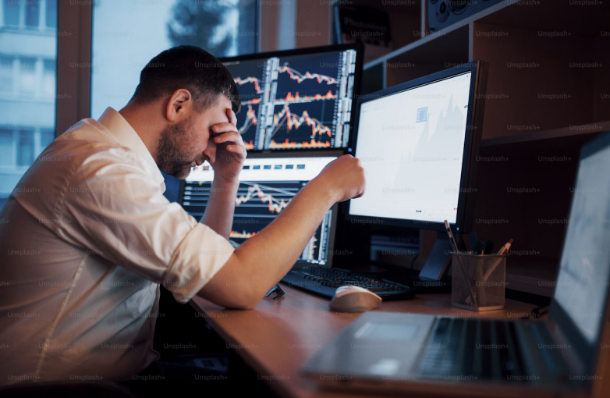Psychology and Risk Management: Avoiding Emotional Trading
In the rapid world of financial markets, emotions can complicate a trader's life. They can be a huge impediment to making smart trading and/or investing decisions and are likely one of the main reasons why more than 80% of retail traders lose money. Some of us might know traders and/or investors who use feelings and appear to do well with that strategy. Clearly, trading and/or investing on emotion is not a one-way street leading to losses.
Destructive behaviours come from emotional trading: trades based on a market's "Noisy" conditions, too many trades in a volatile market, revenge trades after a loss, and sticking to a poor strategy. The added problem of high leverage makes all of the above even worse. Contracts for difference (CFDs) are a good example of high-leverage products. In them, small mistakes (like not sticking to a plan or trading when you shouldn't) can lead to devastating losses.
This 2020 market crash perfectly illustrates this occurrence. During the initial pandemic-driven market selloff in March 2020, many retail investors succumbed to panic selling, locking in massive losses. Just before one of the strongest market recoveries in history, those who maintained emotional discipline and followed systematic risk management strategies not only preserved their capital but also reaped significant profits. This is not to say that anyone is glad to have lived through the initial stages of a once-in-a-century worldwide plague, but when it came to the trading side of things, keeping it together paid off quite handsomely.
What Is Emotional Trading?
To trade under the influence of emotion means making investment decisions based on feelings instead of logical analysis and prearranged strategies. It's a situation where psychological factors like fear, greed, anxiety, hope, or frustration take control and lead to the override of rational decision-making processes. This often results in trading that accomplishes the opposite of what trading is intended to achieve. It may seem somewhat unbelievable, given the fact that many traders have to identify and manage their psychological states as a central part of their trading process. But let's list out the accomplishments of trading with emotion.
Confirmation bias makes traders look for and find the information that supports their existing positions and almost ignore any evidence that contradicts them. Overconfidence bias causes us to take reckless risks when a series of winning trades makes us feel like the heroes of this market. Recency bias makes us treat this moment as if it's leading somewhere, causing us to overreact to what's just happened as if it has any real significance.
Risks and Impacts of Emotional Trading
Emotional trading affects far more than just the results of individual trades; it creates systemic risks that threaten the long-term viability and capital preservation of traders. Individual traders may think of emotional trading as a personal issue that affects only them and their trades. But when you consider what happens when the percentage of emotional traders within a trading community reaches a critical mass, it becomes clear that emotional trading is a community issue as well.
Overtrading: One of the most prevalent and wretched forms of emotional decision-making is overtrading. When traders allow excitement, boredom, or a desperate need to recoup losses to drive them to make excessive trades, they usually incur dramatically increased transaction costs, intensified market exposure, and a greatly increased chance of being swept up in bad market moves.
Trading Psychology: Core Concepts to Identify and Control Emotions
Grasping the psychology of trading means looking at the basic workings of our emotional decision-making and, more importantly, finding better ways to maintain control when the markets are charging in one direction or another. The insights offered by behavioural finance have made it possible to understand, at a much deeper level, why so many traders make the same silly decisions, all of us knowing that these decisions are silly but making them anyway.
The bedrock of emotional regulation is knowing the physiological and psychological precursors that lead one to act destructively when under the sway of certain emotions. The commonly used "signals" on the trading floor that indicate to a trader that he or she is in trouble emotionally signal not just emotions but also the appearance of certain dangerous trading behaviours. For instance, traders signal emotional danger when they call their positions into question (i.e., a heart rate that an investor has during such "position monitoring" is often much higher than during a calm analysis of investment opportunities).
Conclusion
The path to consistently profitable trading is twofold: It is both a technical and a psychological journey. Emotional trading is one of the biggest barriers to trading success; it causes persons,, even proficient in trading technique,,s to make poor decisions that harm their long-term trading results. The combination of good psychological practices and systematic, well-constructed risk control strategies for trading CFDs creates robust frameworks that protect capital and support trading careers.
For more info:-


Comments
Post a Comment